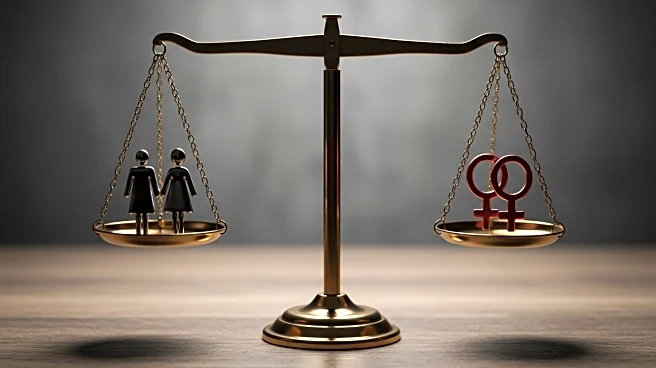What is the story about?
What's Happening?
Former Kentucky county clerk Kim Davis has appealed to the Supreme Court to overturn the 2015 Obergefell v. Hodges ruling, which legalized same-sex marriage. Davis, who was ordered to pay $100,000 to a gay couple she denied a marriage license, is seeking to challenge the ruling based on her religious beliefs. President Trump has expressed varying views on same-sex marriage over the years, initially supporting domestic partnerships and later opposing same-sex marriage before stating he was 'fine' with it post-election. The Supreme Court, with its conservative supermajority, is unlikely to overturn the ruling, according to legal experts.
Why It's Important?
The appeal and President Trump's historical stance highlight the ongoing debate over LGBTQ+ rights in the U.S. While the Supreme Court is not expected to overturn marriage equality, the case underscores the potential for religious liberty arguments to impact LGBTQ+ rights. Trump's varied positions reflect broader political dynamics within the Republican Party, which has shifted its platform to focus on traditional family values without explicitly opposing same-sex marriage. The outcome of this case could influence future legal battles and public policy regarding LGBTQ+ rights.
What's Next?
The Supreme Court's decision on whether to hear Davis' appeal will determine the immediate legal outcome. If the court declines, the lower court's ruling will stand, reinforcing the legal precedent against using religious beliefs to justify discrimination. However, the broader implications for LGBTQ+ rights remain uncertain, as the court continues to address related issues. Future cases may further test the balance between religious liberty and anti-discrimination protections, potentially influencing public policy and societal norms.
Beyond the Headlines
The case reflects a strategic shift among conservative groups, focusing on religious liberty as a means to challenge LGBTQ+ rights without directly overturning established precedents like Obergefell. This approach could lead to incremental changes in the legal landscape, affecting the daily lives of LGBTQ+ individuals and their access to equal rights and protections.

















